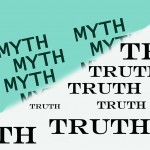 (Note to consumers: This is the first in a series regarding common misconceptions about credit repair or credit restoration. The information contained is deemed to be accurate, but not guaranteed.)
(Note to consumers: This is the first in a series regarding common misconceptions about credit repair or credit restoration. The information contained is deemed to be accurate, but not guaranteed.)
What is a myth? Merriam Webster's Dictionary defines a myth as "a usually traditional story of ostensibly historical events that serves to unfold part of the world view of a people or explain a practice, belief, or natural phenomenon – parable, allegory". Well I don't know about you, but you might as well have spoken Greek to me! I didn't get that. So let's look at a simpler definition: Parable-a usually short fictitious story that illustrates a moral attitude or a religious principle. OK, we're getting closer. Let's look at allegory: the expression by means of symbolic fictional figures and actions of truths or generalizations abut human existence. Now I'm confused again.
Can we suffice it to say "a myth is something you believe based on someone telling you something that may or may not be true?"
In the case of credit repair, myths are things that you believe because you have heard it from someone or on a website, like "credit repair is a scam". That is soooooo untrue. So, let's explore one myth that you might believe about credit repair:
Myth #1: INFORMATION ON YOUR CREDIT REPORT CANNOT BE CHANGED!
Exactly the opposite is true! In fact, the Fair Credit Reporting Act which was enacted in the 1970's was put into place by Congress to make sure that consumers have a way to correct things on their reports that are misleading, outdated, inaccurate or unverifiable. There have been many changes to this act to further strengthen it's enforcement abilities.
However, the general public does not have a clue how to go about getting something changed. The typical consumer who does his own credit repair goes about it this way: he types out a letter, or handwrites it, stating why he thinks an item on his credit report is inaccurate. He mails it to one of the bureaus, or perhaps all three bureaus: Experian, TransUnion, or CSC/Equifax. They all provide PO Boxes for this type of dispute.
He mails it in. When the bureau(s) receives it, their system tries to scan it and upload it into their computer program called E-Oscar. The computer attempts, by the use of word recognition, to determine which category the complaint should be referred to. The Bureau has 30 days with which to reply. Often times, the Bureau simply sends out a form letter stating that there is not enough information provided to verify the complaint. This is a delay tactic that gets most people to give up at that point.
It takes an experienced company who has done this tens of thousands of times to know the exact wording to use to get the result desired. The manner in which the letter is prepared can also make the difference between the complaint getting handled or not.
Remember, while FCRA gives you the RIGHT to dispute, it does not guarantee that disputes will be handled at all, nor does it discuss what happens when you get one of the dismissal letters discussed above.
At KC Credit Services, when you enroll with us, we perform a forensic audit of all three bureau reports, and work with you to determine what is misleading, outdated, inaccurate or unverifiable. We then get to work to resolve all inequities. While we do warrant that we will obtain improvement to your reports, we do not guarantee results, as we hve no control over the bureaus. We rely on the experience we have gained since 1999 with more than 110,000 customers.
Donna Perkins
Myth #1 is debunked. Stay tuned for Myth #2! Meanwhile, if we can help you in any way, click here.

